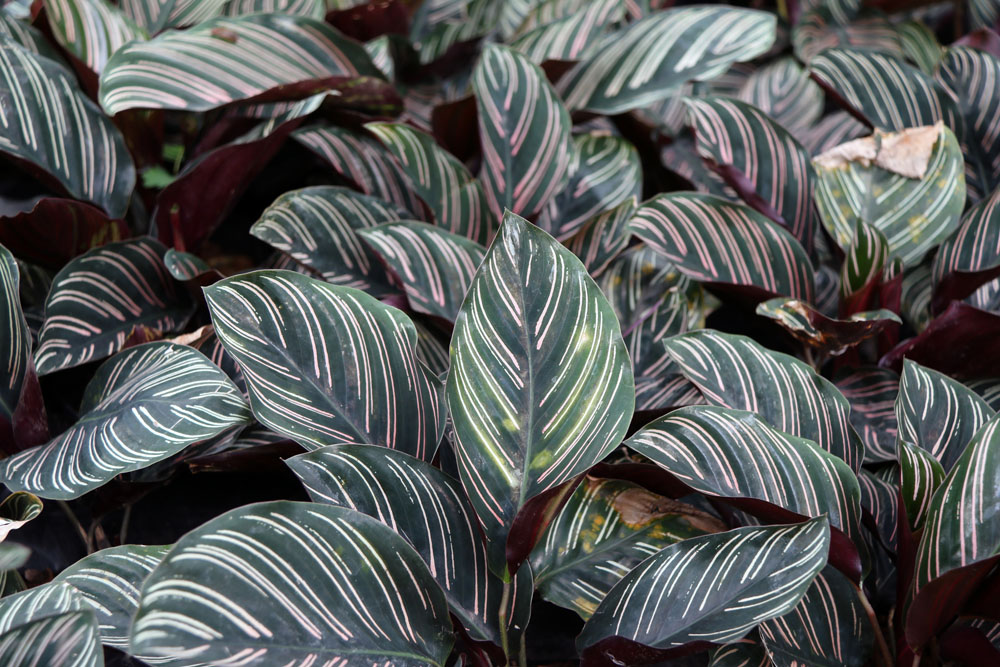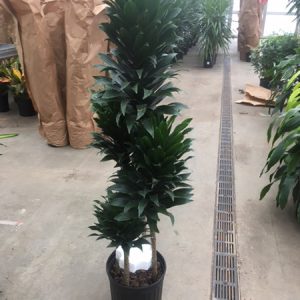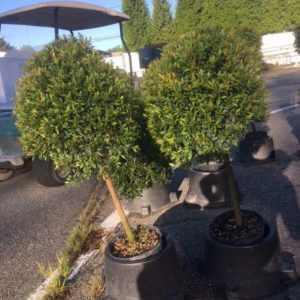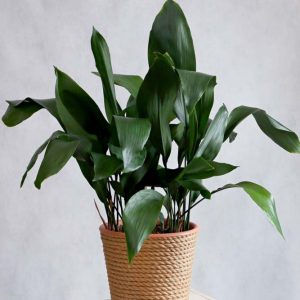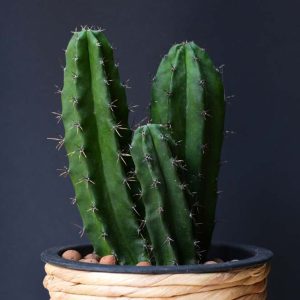Description
Calathea –
There are about 300 species of evergreen rhizomatous perennials, in this genus. They occur in humid forest and at forest margins in tropical Central and South America, and the West Indies. Most are clump forming, with large ovate to elliptic, shiny, long stalked, pale to dark green leaves, often attractively patterned and purplish-red on the reverse, young plants may differ from mature plants in the size and color of their foliage. Hidden among the leaves it bears pairs of small flowers, that are rarely produced in cultivation, are tubular with extended upper and lower lips, and are carried in racemes or dense spikes, accompanied by sheathed bracts, in summer. One species is grown as food crop, yielding small starchy tubers, grow as a houseplant.
Indoors, grow in soilless or soil based potting mix in bright indirect or filtered light, with high humidity, draft free conditions, and a constant temperature. When in growth, water freely and apply a balanced liquid fertilizer monthly, water moderately in winter. Divide clumps in late spring.
Prone to spider mites, bud mites, mealybugs, aphids, fluoride toxicity, leaf necosis leaf spots, fungal leaf spots, and bacterial leaf spots.
C. sanderiana – C. majestica – Sanderiana’ – C. ornata var. sanderiana – C. ‘Sanderiana’ – This robust clump forming perennial from Peru grows 6′ feet tall and half as wide. It produces broadly elliptic, unequal-sided leaf blades, 24″ long, on leaf stalks 8″ or more long on leaf stalks, 8″ or more long. Deep olive green leaves have pairs of thin, rose-red, lateral stripes on either side of the midribs, becoming white on older leaves, the undersides are purple. White and violet flowers are carried in conical spikes, 2-3″ long in summer.
Zones 14-15

